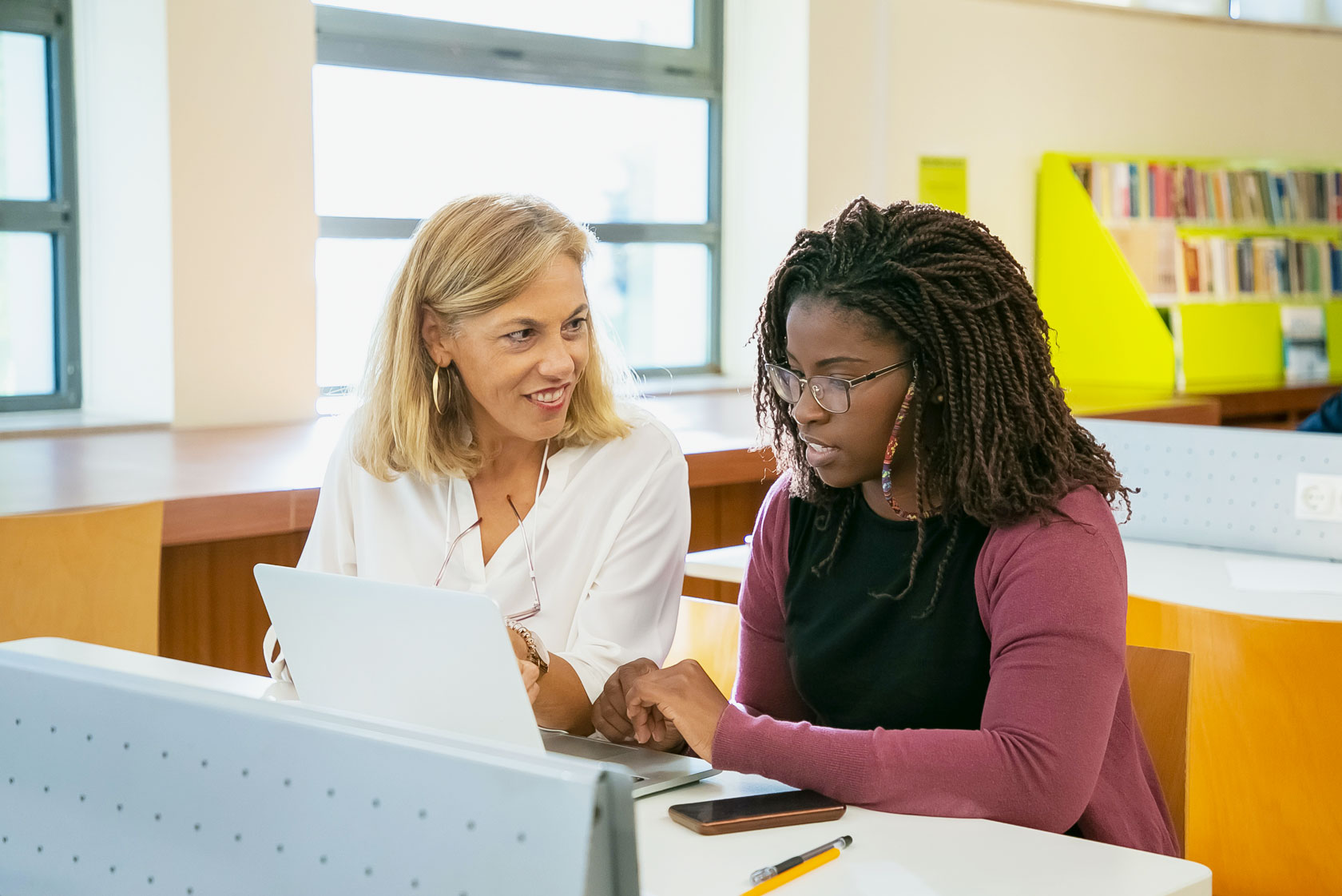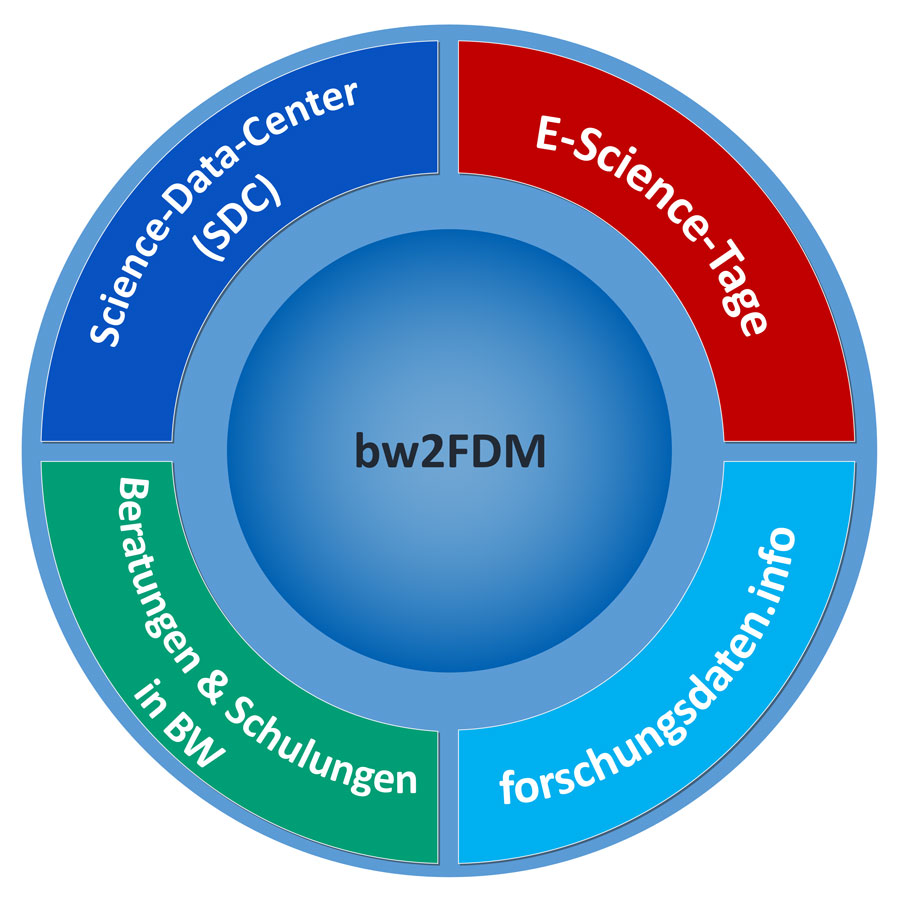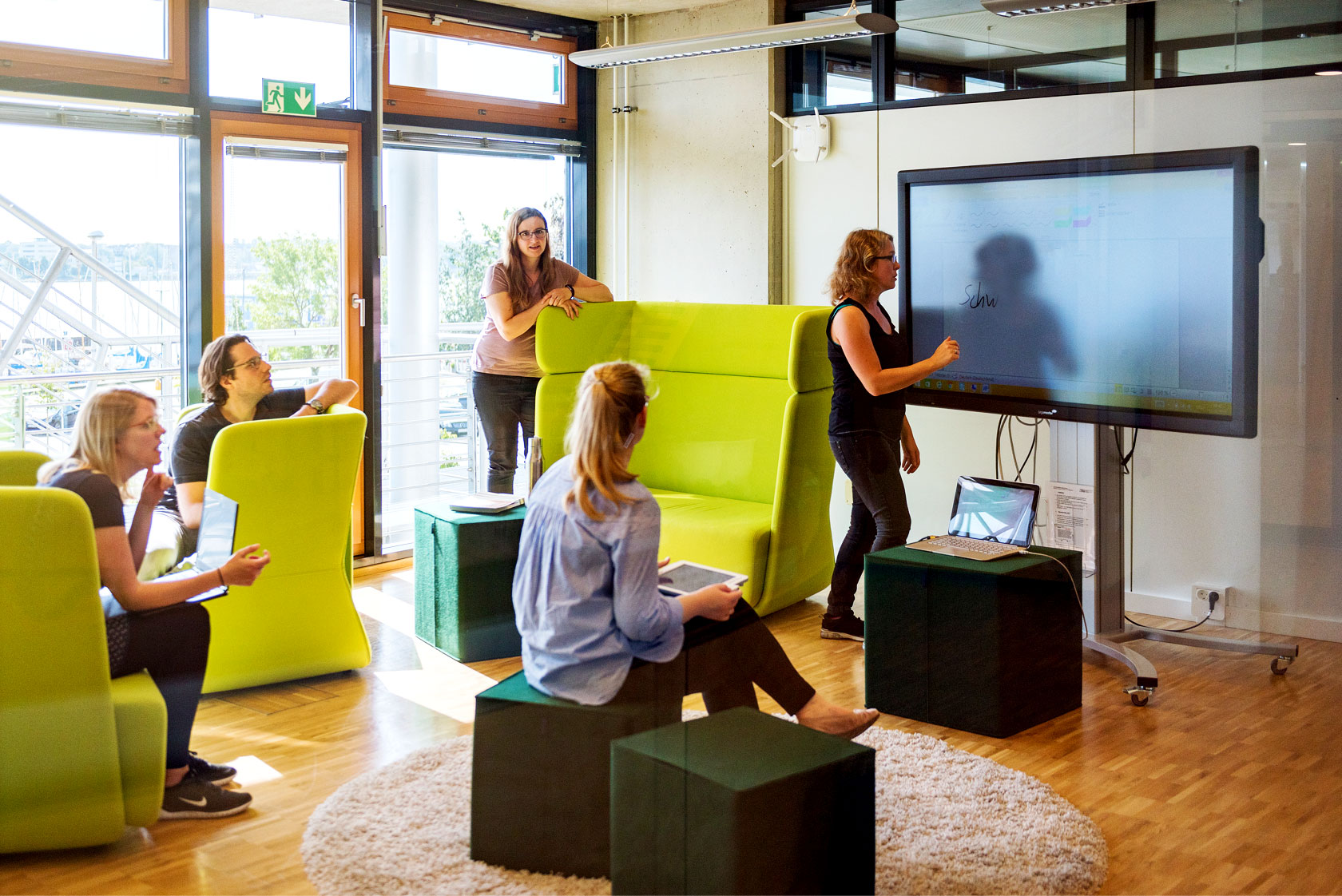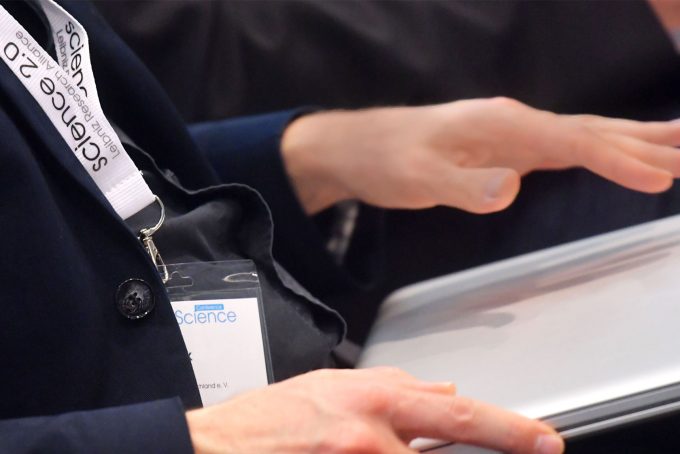
Research Data Management Project bw2FDM: Best Practice for Consultations and Training Seminars
Best practice examples often provide guidance and suggestions for tackling tricky challenges in the academic system. The project bw2FDM is an inspiring example of how research data management is advanced in Baden-Württemberg and beyond: through cooperation, sustainability and open practices. Two colleagues introduce the project in an interview and reveal where academic libraries come into play.
We were talking to Elisabeth Böker and Peter Brettschneider
Research data management (RDM, known as FDM in German) is an essential topic regarding Open Science. Baden-Württemberg’s support and development project for research data management (German, bw2FDM) is dedicated to this issue. One of the aims of the bw2FDM project is to create a multifaceted educational programme to drive forward sustainability and networking within the entire research data management community. bw2FDM also operates the information platform forschungsdaten.info (Forschungsdaten means research data), which offers a wide-ranging collection of articles on RDM topics. None of these programmes is limited to a specific institution; rather they are aimed at the entire German-speaking community. Elisabeth Böker and Peter Brettschneider, who are involved in the project, explain how it works in detail, which topics are particularly popular within the RDM community, and what role libraries and information infrastructure institutions can play.
Please introduce the project in three sentences: What is the mission / aim / vision of bw2FDM?
Elisabeth Böker: bw2FDM is an initiative for research data management, funded by the Baden-Württemberg Ministry for Science, Research and Art. We follow four primary aims:
- The coordination of the interdisciplinary issues of the four Science Data centres (German) in Baden-Württemberg.
- We want to develop the information platform forschungsdaten.info further to become the central RDM platform for the German-speaking countries.
- We offer consultations and training seminars on the topic of research data management, primarily for researchers from Baden-Württemberg.
- bw2FDM is responsible for the planning and implementation of the E-Science-Tage conference .

Fig. 1: Diagram showing overview of bw2FDM project areas / Axtmann and
Reifschneider / CC BY 4.0
We are particularly interested in the bw2FDM consultations and training seminars on research data management, which you also presented at the Open Science Conference 2021. What was your approach? What is your target group? What you do offer, specifically? And who can participate in the training seminars and consultations?
Elisabeth Böker: That differs slightly, depending on the format: We focus our training seminars primarily on researchers from Baden-Württemberg. The students of the University of Konstanz are the target audience for our Open Science course. We want to introduce them to the topic of Open Science during their studies and are delighted at the considerable interest it has already drawn. The course “Open Science: From Data to Publications ” is subject to a CC BY licence – reuse is most welcome! Following the principle of openness, we have also published the videos as Open Educational Resources (OER) on Zenodo (German) and the central OER repository of the Institutions of Higher Education in Baden-Württemberg (ZOERR, German) as well as the material collection of the sub-working group training seminars / continuing education of the DINI/nestor AG research data (German) and also on the website of the Konstanz Open Science team.
By way of contrast, forschungsdaten.info live (German) focuses on all interested persons – both researchers as well as RDM officers – throughout the entire German-speaking countries.
Peter Brettschneider: : We try to consider research data management in a holistic sense. This also means that we focus on different target groups, and it also ensures that our training activities never become boring.
To what extent do you specifically address Open Science topics, for example in the field of Open Data?
Elisabeth Böker: Research data management is our central focus point. The guiding principle of the EU data strategy “as open as possible, as closed as necessary” is extremely important to us, which is why we emphasise it continually.
Libraries fit wonderfully into a data-based academic world.
– Peter Brettschneider
(How) Are academic libraries and other digital infrastructure institutions integrated into the field of training seminars and consultations?
Peter Brettschneider: Libraries fit wonderfully into a data-based academic world. Their core business is collecting information and making it available to the users. Research data have been part of the digital inventory of libraries for a considerable time. For example, that is the reason why universities will usually task their library or IT department with the implementation and operation of a research data repository. However, this kind of services should be accompanied by consultation and training programmes. Once again, our aim is to approach research data management holistically: It is not sufficient to provide just the hardware. There is also a need for people who explain and promote these services and are ready to assist researchers that may require help.
The project runs from 2019 to 2023. This means that you are just about half way through. Could you draw some interim conclusions? What are the most important lessons that you have learned over the past two years?
Elisabeth Böker: RDM is a team sport” – this is what we wrote in a publication (German) about our project. In this spirit, I would say it is crucial to approach issues collaboratively, use synergies and then progress towards the target. That works wonderfully. It is particularly gratifying to see this happening with the forschungsdaten.info platform. Even before “half-time”, we have been able to bring colleagues from Austria and Switzerland into the team – and we intend to continue building on this even more intensively in the second phase.There is an enormous demand for legal topics, and we are very lucky to have with Peter Brettschneider a legal specialist in the team.
FDM is a Teamsport.
– Elisabeth Böker
Peter Brettschneider: Indeed, there is a lot of uncertainty regarding legal issues. In our training seminars, we like to combine legal topics with fundamental RDM know-how. This is important to us, because we can’t emphasise enough the central messages on research data and its management – such as FAIR data. But on the other hand, research data management is not an end in itself. It’s not our task to proselytise. Rather, it is our intention to support researchers and to make their research visible and reusable.
What has the feedback to your RDM consultation and training seminar programmes been like so far?
Elisabeth Böker: We are extremely satisfied. With forschungsdaten.info live in particular, we were able to average over a hundred participants. The demand is definitively there!
Which of your programme’s RDM topics or formats are particularly popular?
Elisabeth Böker: The forschungsdaten.info live format has been very popular – in part due to its focus on the entire German-speaking RDM community. Moreover, events that explore legal topics are always sure-fire successes.
The bw2FDM project can definitely be called a success so far in the area of training and consulting. Are there plans to expand your project throughout Germany?
Elisabeth Böker: : We are already active throughout the German-speaking countries with forschungsdaten.info live. However, we intend to advertise our other training seminars primarily for researchers in Baden-Württemberg – at both, universities as well as other higher education institutions. The reason for this is that our funding comes from the Baden-Württemberg Ministry for Science, Research and Art. Moreover, other federal states have their own RDM initiatives that offer great training opportunities.
Are there already similar projects in other federal states? To what extent do you collaborate with them?
Elisabeth Böker: Yes, many other federal states have comparable RDM projects or dedicated initiatives. They introduce themselves on the platform forschungsdaten.info (German). We have close and very fruitful collaboration with our colleagues, both, within a joint discussion forum as well as via the editorial network of forschungsdaten.info.
From a legal point of view, we ensure sustainability by systematically releasing the project results under free licences in order to promote reuse.
– Peter Brettschneider
Sustainability plays an important role in your project. How do you ensure it?
Peter Brettschneider: Sustainability has several dimensions: Structurally, we try to safeguard our programmes in the long-term through partnerships with other institutions. For example, our project team does not run forschungsdaten.info on its own, but rather relies on an editorial network of approximately 20 institutions.
From a legal point of view, we ensure sustainability by systematically releasing the project results under free licences in order to promote reuse. This means that all training materials are licenced under Creative Commons BY 4.0. The contents of the forschungsdaten.info page can be reused completely without any restrictions, as we waive our rights by using CC 0 1.0.. Perhaps the most difficult thing is securing sustainability in terms of personnel. Currently, research data infrastructures are primarily sustained by project employees – the National Research Data Infrastructure (NFDI) provides a good example. That is a real issue since RDM is a long-term task.
This text has been translated from German.
Weblinks to the bw2FDM project and to forschungsdaten.info:
- Website bw2FDM (German)
- Educating data literacy – a holistic concept. A best practice example for open science education
- Online course Open Science: From data to publications
- Website Forschungsdaten.info
- Newsletter forschungsdaten.info aktuell
- Twitter-Account @ForschDatenInfo (German)
This might also interest you:
- Wikidata and Open Science: A Model for Open Data Work
- Open Science Right from the Start: How the UBC Okanagan Library Introduces Students to Good Scientific Practice
- Guidelines: Electronic Lab Notebooks in Research Data Management
- Legal Compendium on Open Science: Guideline answers Legal Questions
- Research Data Management: Toolbox for successful institutional Services
- Open Educational Resources: How the EconBiz Academic Career Kit Trains Open Science Skills
- FAIR Data: Many paths lead to the EOSC
- Research data management: over-reliance on the lifecycle metaphor – and alternatives
- OER-Anleitungen und -Tutorials: Open Educational Resources selbst erstellen
- Promoting OER: How to create an open textbook
We were talking to Elisabeth Böker and Peter Brettschneider
Dr Elisabeth Böker is the project coordinator of bw2FDM (German), an RDM initiative funded by the Ministry of Science, Research and Art of the State of Baden-Württemberg, and is the chief editor of forschungsdaten.info. She works in the Open Science team of the Communication, Information, Media Centre (KIM) at the University of Konstanz. She can also be found on ORCID.
Portrait: Elisabeth Böker©
Peter Brettschneider is a subject specialist in legal studies, a member of the Open Science team and responsible for copyright issues at the Communication, Information, Media Centre (KIM) at the University of Konstanz. He also works in the bw2FDM project on training, consulting and the website forschungsdaten.info. He cal also be found on ORCID.
View Comments

Libraries as a Place After Corona: Hybrid and Participatory?
If you had the chance now to design a library completely from scratch, what would it...



